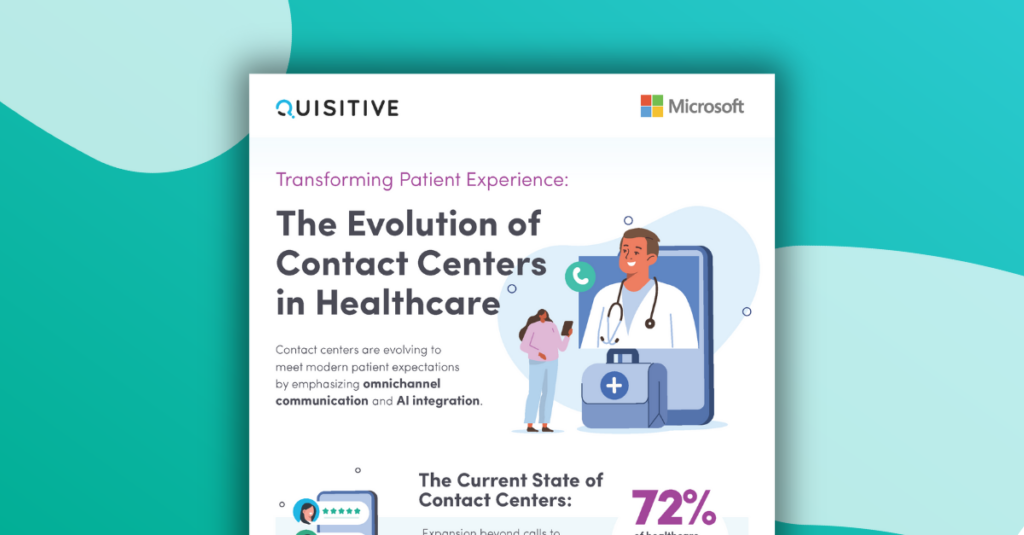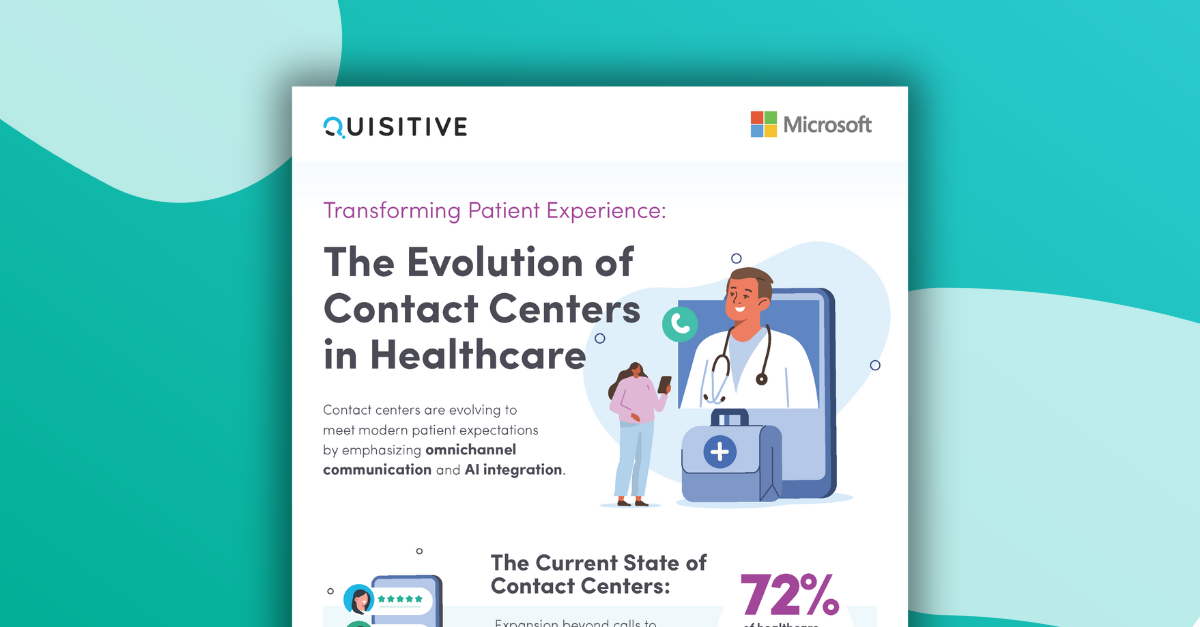Patient expectations continue to evolve rapidly, and the healthcare industry must keep pace with technological advancements to provide an omnichannel patient experience. Contact centers, once perceived merely as call centers, have transformed into sophisticated digital hubs that enhance patient engagement, streamline operations, and improve overall healthcare delivery. At the heart of this transformation is the integration of AI, which promises to revolutionize the way contact centers operate.
The Current State of Contact Centers
Contact centers in healthcare are undergoing significant changes. Traditionally, these centers focused on managing inbound and outbound calls, often struggling with long wait times and limited patient interaction capabilities. However, with the advent of digital technology, contact centers have expanded their reach across multiple communication channels, including email, chat, social media, and SMS.
A recent study by Frost & Sullivan highlights that 72% of healthcare providers recognize the need for a unified contact center strategy to deliver a seamless patient experience. This shift towards an omnichannel approach ensures that patients can securely interact with healthcare providers through their preferred communication medium, enhancing satisfaction and engagement.
The AI Revolution
AI is at the forefront of transforming contact centers, offering numerous benefits such as improved efficiency, personalized patient interactions, and predictive analytics.
According to a report by Accenture, AI in healthcare could save the industry up to $150 billion annually by 2026 through efficiency gains and enhanced patient care.
Microsoft’s Vision for Contact Centers
Microsoft is leading the charge in this AI-driven revolution, particularly with its integrated solutions within Teams, Dynamics 365, Nuance, and Copilot.
Teams
As a collaboration platform, Microsoft Teams enhances communication within healthcare organizations. It enables seamless private interaction between patients and healthcare providers through chat, voice, and video calls.
The integration of AI in Teams allows for real-time translation, sentiment analysis, and automated responses, ensuring that patient queries are handled efficiently and effectively.
Dynamics 365
Dynamics 365 for Customer Service empowers healthcare contact centers with AI-driven insights. This platform provides a 360-degree view of patient interactions, enabling agents to deliver personalized experiences. AI-powered chatbots and virtual agents can handle routine inquiries, freeing up human agents to focus on more complex patient needs.
Furthermore, predictive analytics within Dynamics 365 can anticipate patient requirements, allowing for proactive care and intervention.
Nuance
A pivotal part of Microsoft’s healthcare contact center strategy is the integration of Nuance technologies. Nuance, known for its advanced speech recognition and conversational AI, plays a crucial role in enhancing patient-provider interactions. With Nuance’s capabilities, contact centers can offer more natural and intuitive communication options for patients.
This technology is especially beneficial for handling complex medical inquiries and ensuring accurate information capture, thereby improving the quality and efficiency of patient interactions. The synergy between Nuance’s AI-driven solutions and Microsoft’s platforms like Teams and Dynamics 365 ensures a comprehensive, cohesive, and effective patient engagement strategy.
Copilot
Microsoft’s Copilot, an AI-powered assistant, further augments the capabilities of contact centers. Copilot assists agents by providing real-time suggestions, automating routine tasks, and delivering insights from patient data. This not only enhances agent productivity but also ensures that patients receive accurate and timely information.
The Impact on Patient Experience
The integration of AI in contact centers significantly improves the patient experience. Patients benefit from reduced wait times, personalized interactions, and seamless communication across various channels. For instance, an AI-driven chatbot can instantly respond to common queries, schedule appointments, and provide follow-up care instructions, all while maintaining a consistent and personalized tone. And when needed seamlessly transfer to a live agent with all the previous information at the agent’s disposal.
Moreover, AI’s predictive capabilities enable healthcare providers to anticipate patient needs. By analyzing data from previous interactions, AI can identify patterns and suggest proactive measures, such as sending reminders for medication or follow-up appointments. This level of personalized care fosters a deeper connection between patients and healthcare providers, ultimately leading to better health outcomes.
The Road Ahead
As AI continues to evolve, its potential to transform contact centers in healthcare is boundless. Future advancements may include even more sophisticated virtual agents capable of handling complex medical inquiries, AI-assisted diagnostics, and enhanced data security measures to protect patient information.
Healthcare providers must embrace these technological advancements to stay competitive and meet the growing demands of their patients. By leveraging AI and Microsoft’s innovative solutions, contact centers can become powerful tools for delivering exceptional patient care and driving operational efficiency.
Get the infographic
See how contact centers in Healthcare are evolving to meet modern patient expectations by emphasizing omnichannel communication & AI integration.
Join the evolution.
Let Quisitive show you how to leverage your existing Microsoft technologies and AI to transform your healthcare contact center. Empower your health teams with modern digital tools to engage patients across voice, video, and other digital engagement channels.
SOURCES:
Here are the sources for the statistics used in the column:
- Frost & Sullivan’s Report on Digital Transformation in Healthcare Contact Centers: (Store.Frost.com) (Store.Frost.com).
- Microsoft and Nuance merger and digital contact center: Source: Microsoft Official Blog
- Accenture AI in healthcare savings: ICT&Health

;)




